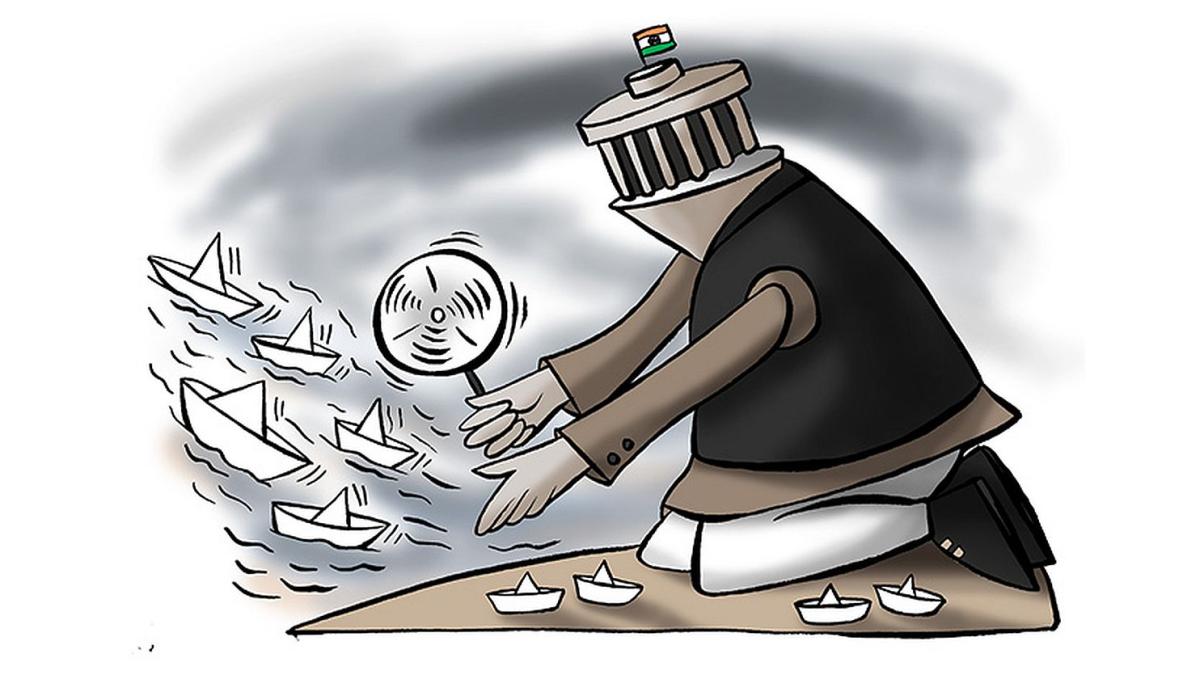Pharmaceutical Export Track & Trace System Withdrawn
India's Commerce Ministry has withdrawn the track & trace system for pharmaceutical exports, aligning with the Health Ministry's regulations. The move streamlines export procedures and ensures product traceability.

Illustration: Uttam Ghosh/Rediff.com
New Delhi, Jan 31 (PTI) The Commerce Ministry on Friday said it has withdrawn the provisions related to the track and trace system for pharmaceutical exports under the foreign trade policy.
The implementation of the authentication system for drug formulations being exported will be undertaken by the Ministry of Health and Family Welfare in line with the provisions under Drug Rules 1945, according to a public notice of the Directorate General of Foreign Trade (DGFT).
"The DGFT has decided to streamline export regulations by aligning with the evolving regulatory framework of the Ministry of Health & Family Welfare. Accordingly, the provisions related to the track and trace system for pharmaceutical exports under the Foreign Trade Policy are being withdrawn," the ministry said.
The system, introduced on January 10, 2011, mandated barcoding at various packaging levels.
While tertiary and secondary packaging requirements were successfully implemented in 2011 and 2013, primary-level barcoding and parent-child data uploading faced operational challenges and were repeatedly deferred, with the last extension valid until February 1, 2025.
It added that the health ministry has already implemented barcode/QR code requirements for 300 drug brands under the Drugs Rules, 1945, from August 1, 2023, with plans for further expansion.
The move also assumes significance as most export destinations have their own serialization requirements, ensuring product traceability without additional domestic regulations.
"With this step, DGFT is enhancing ease of doing business for pharmaceutical exporters while ensuring regulatory coherence," it added.
The implementation of the authentication system for drug formulations being exported will be undertaken by the Ministry of Health and Family Welfare in line with the provisions under Drug Rules 1945, according to a public notice of the Directorate General of Foreign Trade (DGFT).
"The DGFT has decided to streamline export regulations by aligning with the evolving regulatory framework of the Ministry of Health & Family Welfare. Accordingly, the provisions related to the track and trace system for pharmaceutical exports under the Foreign Trade Policy are being withdrawn," the ministry said.
The system, introduced on January 10, 2011, mandated barcoding at various packaging levels.
While tertiary and secondary packaging requirements were successfully implemented in 2011 and 2013, primary-level barcoding and parent-child data uploading faced operational challenges and were repeatedly deferred, with the last extension valid until February 1, 2025.
It added that the health ministry has already implemented barcode/QR code requirements for 300 drug brands under the Drugs Rules, 1945, from August 1, 2023, with plans for further expansion.
The move also assumes significance as most export destinations have their own serialization requirements, ensuring product traceability without additional domestic regulations.
"With this step, DGFT is enhancing ease of doing business for pharmaceutical exporters while ensuring regulatory coherence," it added.
You May Like To Read
TODAY'S MOST TRADED COMPANIES
- Company Name
- Price
- Volume
- Vodafone-Idea-L
- 11.36 ( -2.49)
- 94664837
- AvanceTechnologies
- 1.16 (+ 4.50)
- 34522155
- Sunshine-Capital
- 0.26 ( -3.70)
- 29015901
- Alstone-Textiles
- 0.27 ( -3.57)
- 28695959
- Mehai-Technology
- 1.65 ( -4.62)
- 28262795






